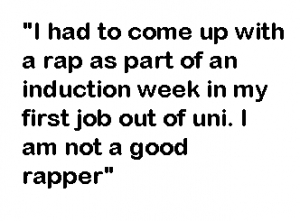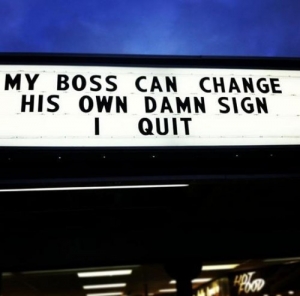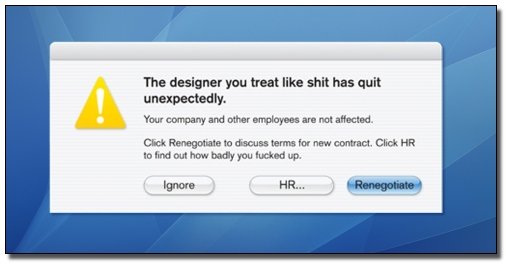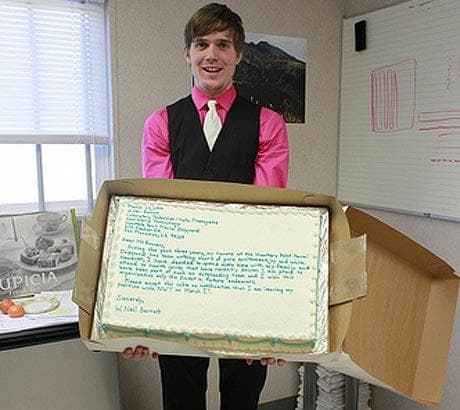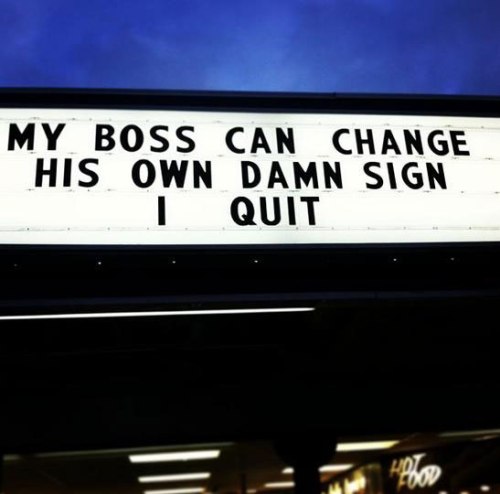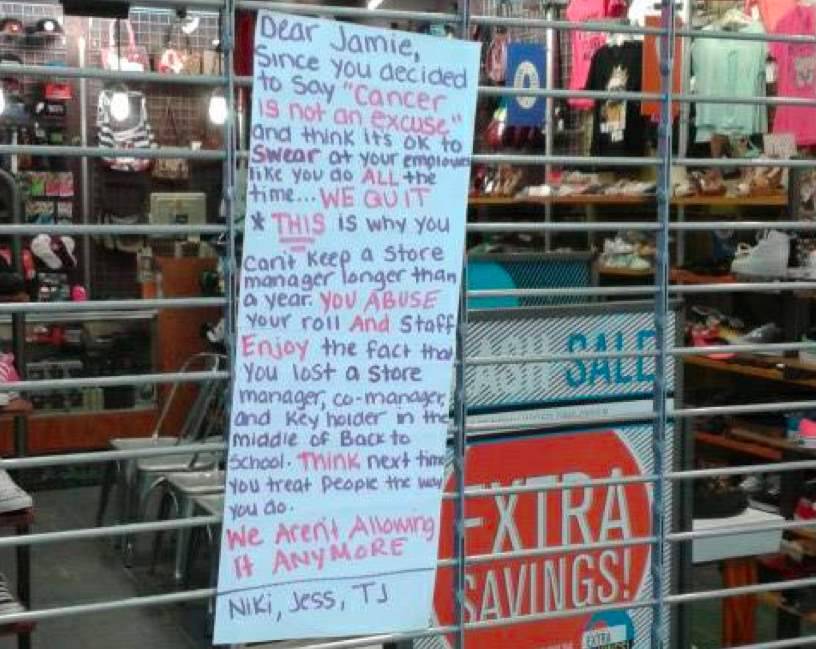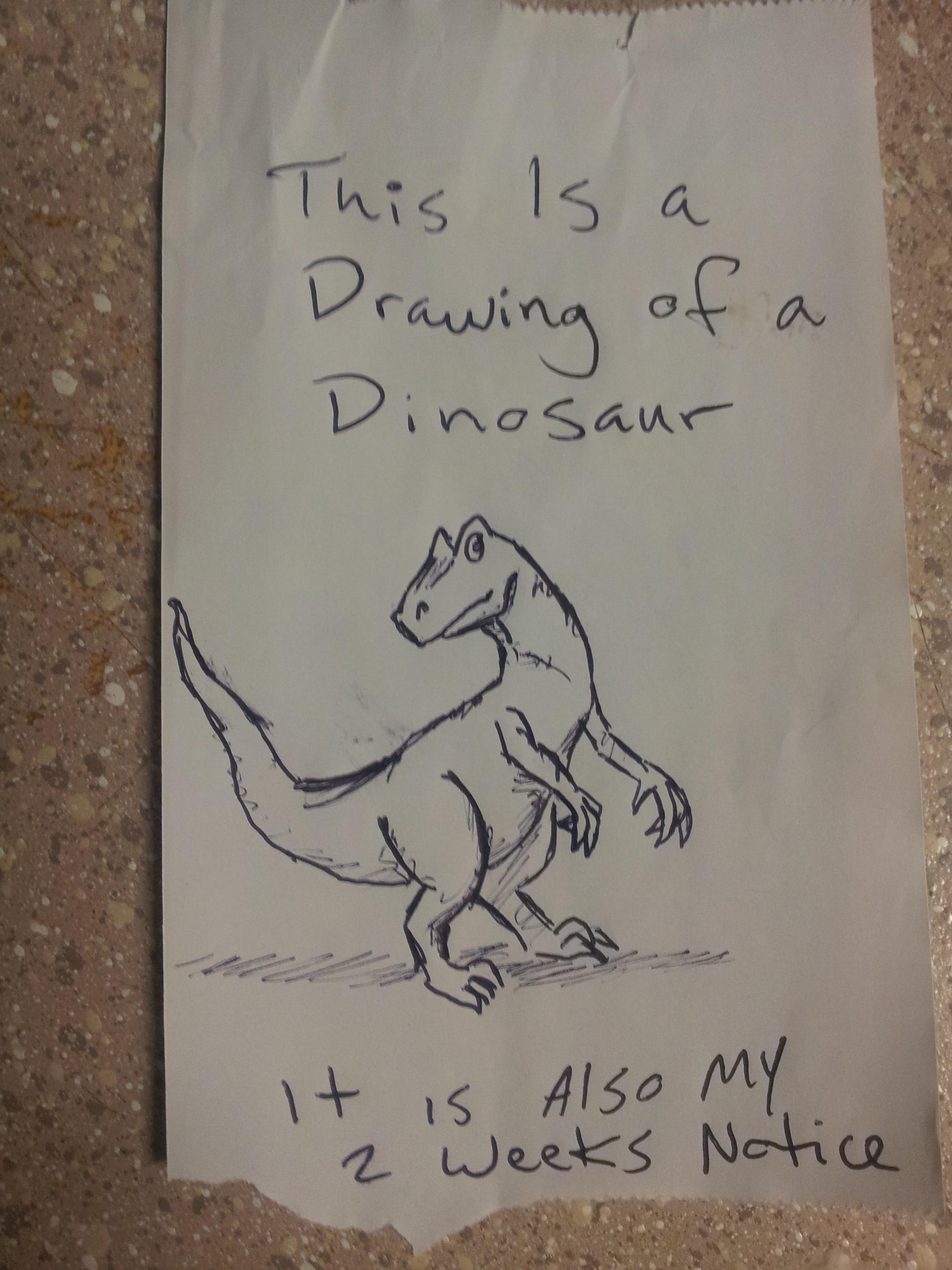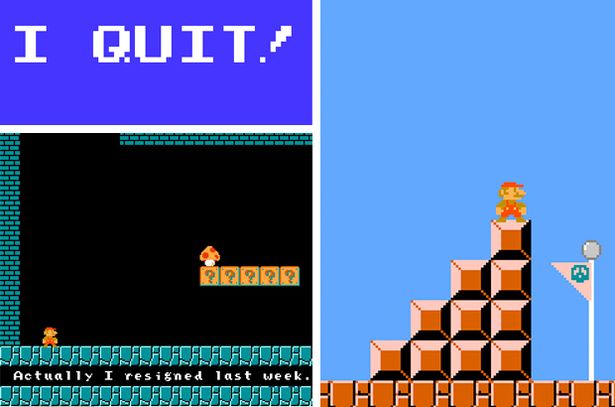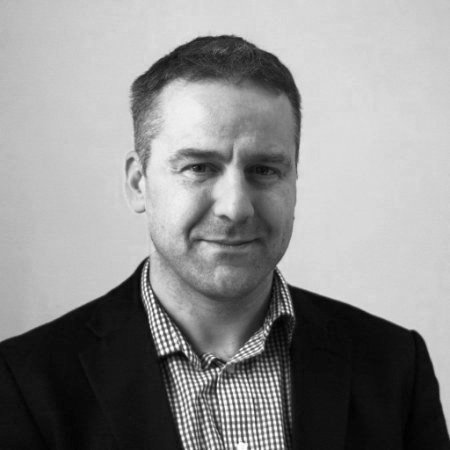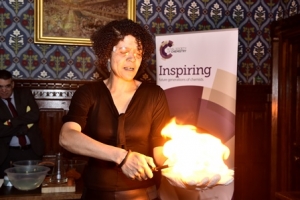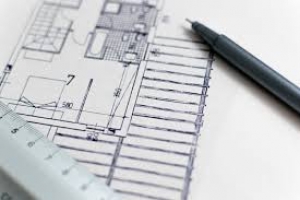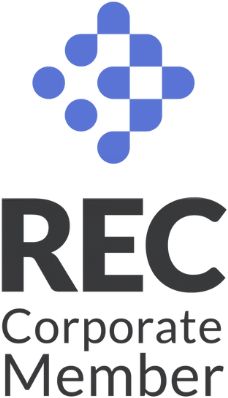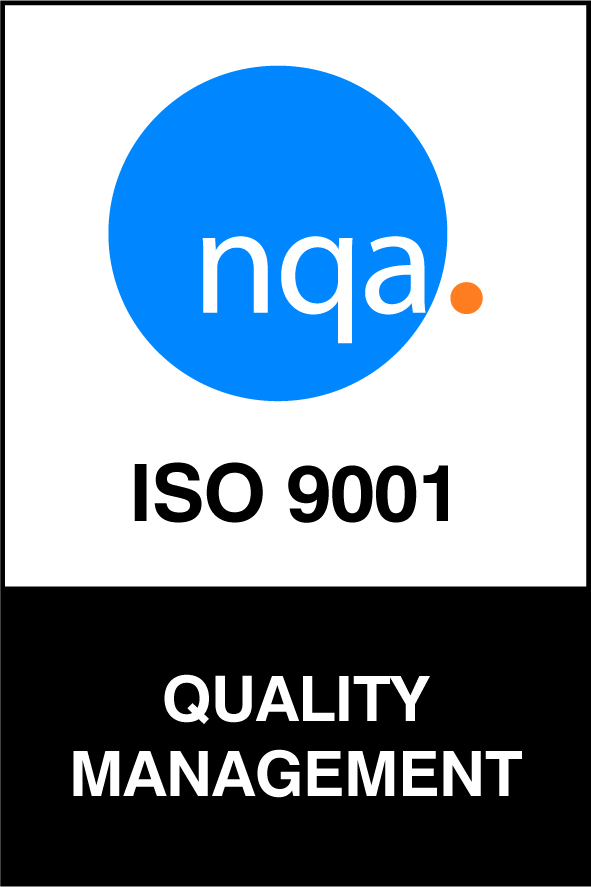Test Owner
Technology is making a real impact in the Built Environment sector and there is no sign of it slowing down. Check out these very impressive innovations in their early stages...
Igloo VR Systems
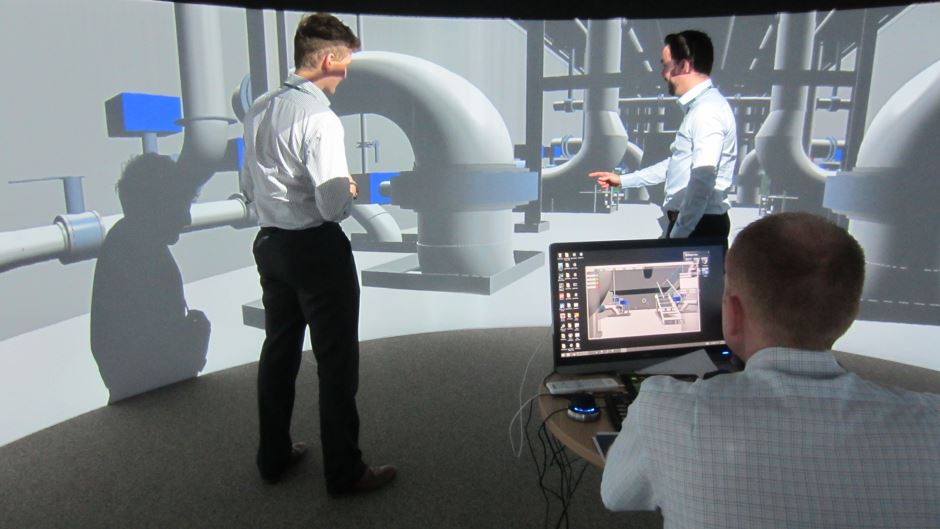
The current VR system can in some cases limit the opportunity for open and shared communication. The individual headsets mean that the experience cannot be experienced by a whole group. Well, Dwr Cymru Welsh Water's is changing this with their new virtual reality cave, or igloo. The igloo has been used by companies to provide cyber site visits for contractors, designers and clients.
A 3D Printed House…in less than 24 hours… for less than $10,000!
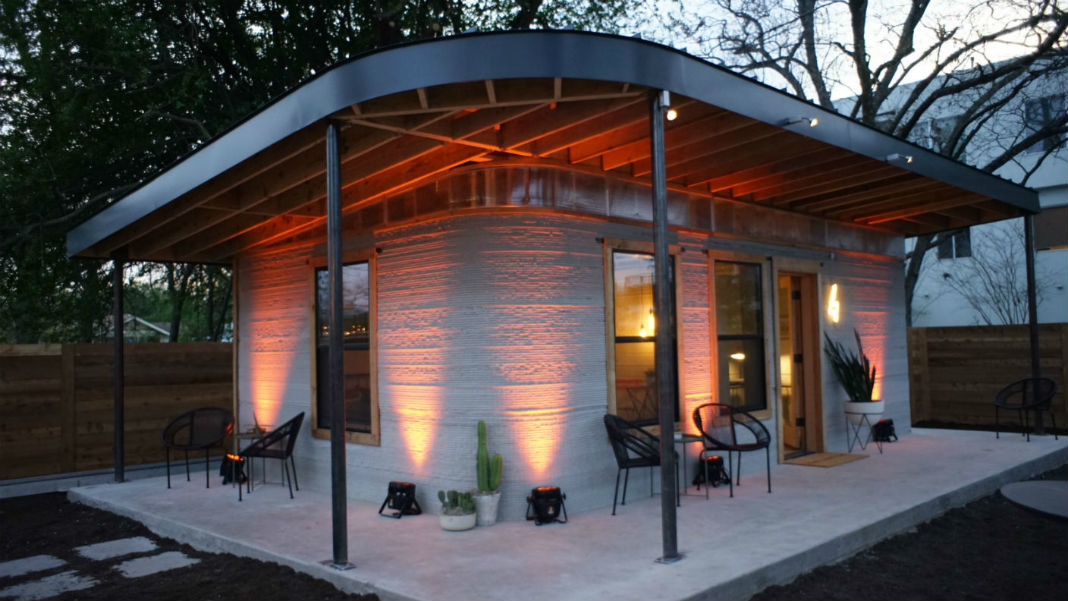
A Construction technology company ICON and non-for-profit New Story revealed their first version of a 3D Printed House in March this year. The 650 square foot house was ready to live in in less than 24 hours and the cost of the equipment cost less than $10000! With further development, the companies even said they would be able to get the costs down to $4000
This was an exciting step to a new way of looking at house construction and some have predicted that in just a few years we could see neighbourhoods of homes built from this method across the globe.
AirMeasure

While AirMeasure may be on a slightly smaller scale than the other technological developments it remains an exciting and innovative piece of tech for the industry. AirMeasure uses augmented reality to create a virtual toolbox for construction workers. Loaded with features, the app helps users measure anything from small distances to far away points and heights. There are also additional tools that aid users with specialized tasks such as calculating a person’s height, previewing virtual furniture in a room, adding laser levels to a wall or drawing in 3D space.
Recycled Carbon Fibre Permeable Pavement

One of the biggest concerns facing industries and government in the 21st century is protecting the Environment. Water pollution and urban flooding have both been big concerns across the globe and concrete pavement has, in the past, played its part in making it worse. Now permeable pavements are being introduced to allow water to drain away, thereby controlling storm-water run-off. Using Carbon Fibre means the pavement is also more strong and durable. A win-win for civil engineers and the planet.
The Connected Construction Site

According to BIM 360, a disconnected workforce produces ‘missed deadlines, costly rework, and a project that becomes famous for the wrong reasons’. Now through utilising new technologies construction companies can create a digital platform for work across the industry so that everyone has the most up-to-date plans, drawings and information. Think the Internet of Things but within one company.
The Robot Site Inspector

With a rover for internal inspections and a drone for exterior inspections, California based start-up DOXEL has introduced a pair of building inspectors that would be hard to argue with. The machines are equipped with high definition cameras and sensors, similar to those used by autonomous vehicles. They then analyse the data before reporting it back to the project teams.
Transparent solar panels
Unlike the current translucent panels, these panels are invisible to the human eye. They use organic salts to absorb light wavelengths. They could turn any surface into an energy absorbing surface and could be both environmentally friendly and designer-friendly. Industry experts are expecting the innovative technology to be hugely popular with designers and architects of the future.
Smart Crossings

You’ve heard smart cities now engineers are going more specific, creating smart crossings. According to consultants at Road Safety Analysis and Transport Research Laboratory, there is are least 20 accidents at pedestrian crossings in the UK every day.
The current crossing system has been criticised for being not-fit-for-purpose and therefore this new smart crossing could bring road safety into the digital age. The crossing prototype launched in South London recognises cyclists, cars and pedestrian and produces familiar graphics to manage the traffic.
7 Tips To Make a Good Impression In Your New Job
You’ve gotten through the interview and you’ve got the job. First off, congratulations, there are plenty of people who would love to be in your shoes and this is the start of a fantastic new career opportunity for you. But proving you deserve the job still isn’t over. Your first few days at a new company are hugely important, now is the time to show in practice what you discussed in your interview and to prove you’re a good fit for the team.
It’s good to be nervous, it shows that you care, but it's time to make a great first impression. So here are our recruitment experts' top tips for your first few days.
Research, research, research
Yes, you may have already done plenty of research before the interview but refresh your memory. There may have been new articles and publications from the company and you will have forgotten some of the information you learnt before getting the job. Having an up-to-date knowledge will show your awareness and engagement with the company. Proving you have a strong work ethic from the get-go.
Be early but not too early
It may be an obvious one but it’s also important. Set off with plenty of time and plan your route before your first day. You may have done that drive before but you may not have done it at rush hour. Use Google Maps to map the best route and change the arrival time to include the average traffic delay. You also don’t want to turn up to the office too early. You may be asked to come to the office a little later on the first day so make sure you respect that. The team want the time to set up for the day and prepare for your joining before you get there. 15 minutes early is usually a good time to aim for.
Introduce yourself
You will most likely be shown around the office on your first day and introduced to most of your colleagues but still try to take the time to properly introduce yourself to people. Be proactive; make the effort and try and remember as many names as possible. Making yourself familiar with your colleagues and comfortable talking to the team as early as possible will mean you feel like a member of the team quickly.
Bring along anything they may need
Having all the stationery you would need with you on your first day will give the right first impression. While it is unlikely you will be left with nothing, being prepared shows your organisation skills. In addition bring any documents the company may need for the accountancy or HR team, passport details, national insurance etc. Although you may not be expected to bring these things it's good to show initiative and get as many of the laborious admin tasks completed as soon as possible.
Stay later
It’s that simple, show your dedication by staying later for your first few days on the job. The last thing you want is to be seen as the first one out the door as soon as the clock hits 5 pm. Make arrangements so you can be home slightly later than usual. It will show your dedication to the job and the tasks you’ve been set.
Ask Questions
You want to be as engaged with the company as you can in the first few days, and ask plenty of questions to get to grips with everyone’s roles, responsibilities and the team dynamic. The team will be glad you’re asking questions and showing interest and it means you will feel settled in even quicker. But don't ask questions you should already know the answer to. Like we said before do the research before stepping into the office.
Network
Both in and out of the office networking is a great tool for meeting new people in your industry and organisation. Take advantage of any meetings you could attend, conferences and training and even after-work drinks. All these will be great opportunities to learn from new people and keep up to date with current industry trends. After-work drinks are a great opportunity to socialise with your new colleagues and show your personality out of work mode, but make sure you don’t turn after-work drinks into a bad hangover and bad first impressions.
This is a really exciting time and you want to make the most of it. Relax, listen more than talk and get to grips with your new career.
The technology revolution has made an enormous impact on the job market and there is no sign of it slowing down anytime soon. Industries are seeing new jobs created and well-established jobs cut, and HVAC is no exception. While innovation and technological advances are at the heart of many engineering jobs, the speed of change in the last few years has been daunting even for the most technologically savvy within the industry. With headlines of dramatic job loss across hundreds of sectors and a new digital age, it can be hard to pinpoint what the future of HVAC will be and how the role of engineers could change.
After speaking to our industry experts and following current industry trends, here is our rundown of the changes in HVAC and how it could impact your job.
Going Green
Moving to sustainable and efficient energy is not that new in the industry. But according to experts from the Institute of Civil Engineering, we should expect big changes and improvements to more sustainable systems in coming years. Despite the criticism by many environmental groups, the Governments Clean Growth Strategy is still a step towards energy efficiency across the UK. The growth in sustainable systems is already being noticed and the industry is lacking the skills required for this modern technology. We should expect substantial changes to the training and equipment used in the coming years, with far more regulations on the industry. Not only that, but the pressure for companies to refit more energy efficient ventilation and refrigeration systems will mean increased job opportunities nationally.
The Internet of Things
Big Data and the Internet of things may seem like tech jargon for the marketing and IT world with little relevance to engineering. However, the fact is that these digital technologies are making a huge impact on the day-to-day work of an HVAC engineer. Intelligent sensors are now common within systems meaning that faults, problems and servicing requirements can be tracked and monitored online, and even without human interaction. This means that when engineers work on a job they can quickly and effectively track what the problems are and even exactly when the problem occurred. Allowing workers to complete jobs quicker and to a higher standard.
The HVAC APP for AutoCAD
In the last few days, JTB World introduced an app, HVACPAC, that will run inside AutoCAD 2018. The app creates 3D and 2D maps of the ventilation systems of a building. This allows for the quicker creation of ventilation structures, digital and personal. AutoCAD is updating constantly, and the design capabilities and opportunities are growing more impressive almost daily. Being able to stay up to date with these changes is key to success in the industry. Although this can be daunting for the senior and well-established HVAC engineers, it is where the industry will continue to head.
Healthy Employment Growth
There is no denying that there many industries that will see massive job losses as a result of the technology revolution. Jobs which can be done quicker and more efficiently by computers will slowly disappear from the job boards, but current trends show that isn’t the case for HVAC. According to GMT, HVAC has seen healthy growth in employment over the past 15 years, where architecture and management roles have seen a decline. Despite the growth in impressive and market changing technology, there remains a vital place for skilled-manual and human-driven jobs.
Working in HVAC and Refrigeration and looking for a new job opportunity? Our team at Calibre Search have the experience and expertise to help you find the role that will help your career develop. Find out what is available on the Calibre Job Page. Call us on 0113 234 6047 to find out how we can help you. Alternatively, you can email our specialists and they will be in touch
I’m a Candidate Get Me Out of Here!!!!
You think eating worms or grabbing hold of snakes is bad? Just wait until you read some of these awkward, embarrassing and even scary candidate stories!
"I had an interview for a job that had a ‘dog-friendly office’ in the initial phone interview I mentioned I had a dog and I was told to bring it into the interview! Sounded like a good sign and I knew my dog Bond could help win over the interviewer. I left the dog with the other staff as we went to make a coffee before sitting down to talk. When we returned my dog had gotten far too friendly WITH THE BOSSES DOG!!! Very humiliating! I got the job in the end, but it took me a while to get the courage to bring Bond back in."
- Jane, Durham
"I had to come up with a rap as part of an induction week in my first job out of uni. I am not a good rapper"
- Matthew, Leeds
"When I was an Assistant Manager at a hotel I was threatened by the Head Chef with a huge cleaver. He’d used the wrong pre-order and cooked all the wrong food, but blamed me for it even though I had nothing to do with it. It was 9pm and I’d already been on for 15 hours doing the breakfast shift and wouldn’t be going to bed until the guests did. I don’t miss hotel work."
- Simon, Leeds
"I once went to an interview in a very dodgy location, after coming out of the interview knowing the job wasn’t for me I returned to my car. It had been broken into and the stereo nicked plus the boot emptied. The most expensive interview I have ever had."
- Simon...AGAIN!
"I had to call a previous employer for a reference for a new job and was politely told the companies managers had been arrested for fraud, one of them is currently in a Spanish prison… don’t think I will be getting that reference anytime soon!"
- Lindsay, Leeds
"I went for a trial shift at a nightclub while I was at uni. The first job I was given was to ‘man-the-toilets’ ; a girl was sick on my shoes and I ran out straight away. I was in my overdraft for the rest of the year. and to make things worse it was my favourite night out and I have never been back since."
- Annonymous (still hoping I might be able to go back), Middlesbrough
"I had a job at a certain well-known supermarket. It was a relatively big shop and the day I handed my resignation my boss made me spend the rest of the day cleaning underneath the bottom shelf of every aisle in the store. No one had ever been asked to do it before and I am confident no one will be doing it again until they resign."
- Michelle, Bradford
"As a summer job when I was at college I stuck stickers on apples as they went past on a conveyor belt. Not the most exciting job going."
- Matthew, Manchester
"I started a new job part-time while studying, 12 hour contract 2 days a week, after the first 3 shifts I was asked to move to a 30 hour contract and be assistant manager, I politely turned the position down. I was then told if I didn’t take it I would be sacked… I left the job the next day!"
- Charlotte, Newcastle
"I met an interviewer in a coffee shop for a more casual meet, when I got there I realised the person interviewing me (and my potential boss) was a woman I had met at a party 6 month before who got so drunk I had to carry her from the bathroom to the taxi. Surprisingly she remembered me and so less surprisingly I didn’t get the job."
Annoymous, London
"I worked at a jewellers and while being audited there was a £6,000 ring missing, we were then told some of the money would be coming out of each of the staffs pay. One month later we were told that the manager had stolen it and had left the country. We did get the money back but still waiting for the apology."
Annoymous, Liverpool
"My first shift at a posh skincare company was going well until I was taken to the office by the manager and told I needed the have a more angelic walk and lady-like voice. I didn’t last very long there…"
- Amanda, Newcastle
8 Very Creative Resignation Letters
We’ve all experienced a bit of writer's block when writing a resignation letter, staying polite and conveying why you are leaving without burning any bridges can be tricky. Well, these very creative individuals took the template resignation letter and ripped it into pieces…
1. The Software nerd who is unlikely to be asking for a reference
2. Edible resignation letter… making losing your employee a little bitterSWEET
3. This theatre worker seems to have been a bit dramatic (No we will not stop with these fantastic puns)
4. We really hope he's not going into a job in graphic design….

5. This manager seems to have been lucky to have had any staff to begin with!
6. Who needs an explanation why you’re leaving if you can draw a dinosaur like that
7. Some people just spend too much time playing video games and not enough time working
8. We think this is a fantastic decision and have already applied for the position of First Officer…

How to Sell Your Soft Skills

Recent research has highlighted how soft skills are now top priorities for companies looking to recruit. Skills such as communication, teamwork, and time management appear in most job descriptions but applicants often fail to evidence them in their CVs or demonstrate them in an interview.
Government, businesses, and schools have been criticised for not funding and encouraging the development of soft skills and, in failing to do so, they have promoted a culture where candidates don't refer to these skills when applying for a new job.
After consultation with recruitment experts, we have highlighted five of the most valuable soft skills according to employers and advised on ways to demonstrate them from the application process to the interview.
Time Management
“By failing to prepare, you are preparing to fail.” – Benjamin Franklin.
Employers demand time management skills, and many interview questions are tailored so you can provide examples of your ability to manage time effectively. Simply saying you are good with time management isn’t enough, you need to unpick how you are good at it. When have you delegated roles, worked to a strict deadline, prioritised certain tasks over others or created schedules? Do you have examples of your scheduling, time planning or even a professional and well-organised diary? Bring it along to the interview it may be helpful to have physical examples of your skills.
Communication skills
Communication skills are quite clearly demonstrated in an interview but can be a lot trickier to show at the initial application stage. Give examples of weekly meetings you attended, presentations you have given and the type of people you are in contact with daily, this may seem less important than qualifications and main responsibilities, but it shows your ability to communicate with a diverse range of people professionally. Producing professional emails and letters are important in most jobs so, on top of verbal communication, don’t forget to include some examples of your written communication skills. When in the interview make sure you listen carefully and don’t over-communicate, eye contact, positive body language and not interrupting are just as important as being able to talk confidently.
Teamwork
A good way to show strong teamwork skills is to have an example of when you have worked with colleagues under a lot of pressure rather than just day-to-day activities. Hitting a deadline, completing a big project or organising an event can make the pressure really hit. Rising above the stress to work effectively, staying positive and being supportive shows you are a team player. When explaining your role try to get a good balance between praising the team you worked with and highlighting your contribution to the job.
Work Ethic
A strong work ethic is vital to employers but hard to portray for a candidate. Like all other soft skills simply saying you have a “strong work ethic” or are a “hard worker” won’t be good enough but good examples of your work ethic will help. A clever trick, however, is to use LinkedIn to help highlight your strong work ethic. Have an active LinkedIn page with up-to-date posts about the industry you are working in, this will show your passion and interest for the job. If you have recommendations from other employees on your LinkedIn that could help your application. We all know lots of employers look at social media now, so try to use it to your advantage!
Problem-Solving
Most employees will have been faced with unhappy customers, a project going wrong or an unexpected problem, how you deal with these situations is very important for employers. When giving examples of your problem-solving skills try to follow the Bransford IDEAL model to give details of the specific problem, how you worked to fix it and what skills you have learned because of it: 1. Identify the problem. What are the essential elements of the problem? Is it a problem that is similar to others that you may have solved? 2. Define the problem by thinking about it and sorting relevant information. 3. Explore solutions. What are the advantages and disadvantages of each solution? 4. Act on strategies 5. Look back and evaluate the effects of your activity.
Fitting all of this onto one CV might be tricky, employers don’t want to see big paragraphs and four pages of information on one candidate. Try speaking to a good, well-respected recruiter who should have a good understanding of which skills different employers are looking for. They can guide you into the right job for you and identify what skills you have that you may have overlooked. By applying through a recruiter, you can also benefit from their positive and trusted relationship with the employer. If you work in the Built Environment, FM or IT and would like our help finding the right job for you give us a call on 0333 323 0733 or alternatively, you can email us and one of our team of industry-specific recruiters will get back to you.
This week we have spoken to our team of Quantity Surveyor recruitment specialists to pick their brains to provide you with the best interview tips for your next interview.
Associate Director - Civil Engineering, Building, and Housing Contractors
0113 234 6047
mark.brennan@calibresearch.co.uk
Impress with Your Network
You know the importance and benefit of a strong network in this industry so don’t forget about it in the interview! When talking about your projects and experience mention the contractors you have worked with and the positive relationships you have built in previous roles. You will be able to impress the interviewer with your vast network and bring additional benefits to the company.
Know Your Day to Day Activities and Extended Responsibilities
In a lot of the feedback, we receive from clients they say many candidates are unable to accurately outline their day to day responsibilities in their current role. It might seem simple, but it is easy to forget the smaller tasks you are responsible for which makes a big difference to the success of a project. Before the interview, note down a typical day in your current position, from start to finish, meaning it will stay fresh in your mind and will also allow you to point out any responsibilities you have that are beyond the typical scope of a quantity surveyor. Interviewers love candidates who take on additional responsibilities.
Flip the Interview
Another comment used to describe a typical quantity surveyor interview is ‘Binary’. Interviewers will tend to follow a similar line of questioning: What Projects have you worked on? What were your responsibilities? Try to stand out by flipping the conversation to being company entred. Talk about the project you would be working on in the new business then point to the skills, responsibilities, and experience you have that would benefit that project. You will show you have done your research and are company focused.
Be Prepared For a New Style of Industry
The industry has changed a lot in recent years. Companies are less likely to offer large bonus schemes or company cars now and put a bigger focus on company values and visions., this can come as a surprise to experienced surveyors so try to prepare as best you can. Know the values of your previous employer and have examples of how you portrayed those values in your day to day work. Sometimes bonus schemes or company visions, goals and values are not very clear when researching a company and can be very important when choosing which companies to apply for; Using a good recruiter can help filter through companies to find the best one to fit your goals and expectations. On top of that, they can further your knowledge of the business that will make you extra prepared if offered an interview.
Talk About Progression
An interest in progression is a good sign in any interview but particularly for a quantity surveyor. Your professionalism and expertise will be used to win over projects and pitch to potential clients so if you are keen to develop in the industry make sure you talk about it. If you are studying or hoping to study in the future make sure you know the details that will interest the interviewer. What it will cost them; When you expect to complete it or how long it will take; and what benefits that will give to the company. If you have career goals, ask the right questions to show your intent, ask about career progression, routes to particular roles and the future projects of the company. Once again, showing your interest and commitment to the company.
Follow Up Email
It is simple, but many people forget to do it. Sending a follow-up email thanking them for their time and consideration shows your professionalism and communication skills. Giving an insight into how you operate as a surveyor.
Have a Well Organised Portfolio
A portfolio is not essential for an interview for a Quantity Surveyor, but it is a great tool: Firstly, having physical examples of the projects you have worked on will provide clarity and context for the interviewer; Secondly, it helps to create a more conversational structure within the interview; and finally it is a great aid to remind you of details and statistics from previous projects.
Speak to one of our Quantity Surveyor recruitment specialists to find out how they can help you find the right job for your career progression by looking at our quantity surveyor jobs here, dropping us an email or give us a call on 0333 323 0733.
Meet Our Team
Associate Director - Civil Engineering, Building, and Housing Contractors
0113 234 6047
mark.brennan@calibresearch.co.uk

Recruitment Consultant - Surveying/Project Management
0161 660 2360
In the last 25 years, the number of girls studying physics has not improved from its low level of 20%; The UK has the lowest percentage of female engineering professionals in Europe, and only 9% of the engineering workforce are women. Alongside this, the Royal Academy of Engineering has stated that the UK needs an extra one million engineers and technicians within the next five years. It is not hard to see the correlation here. By reducing the stereotypes and misunderstanding surrounding engineering, more women will be encouraged into the sector, and the workforce shortfall will reduce.
It is more important than ever that businesses, schools, and government take a proactive approach to tackle the issue to prevent another decade of imbalance. Over the past seven years as an elected parliamentarian Chi Onwurah has dedicated countless hours championing the importance of females in the engineering workforce.
As an engineer herself, with over two decades’ experience in the sector, Chi knows what it is like to be in a male dominated industry. We spoke to her about her achievements so far as a parliamentarian, her advice to young people and her experience as an engineer.

As an engineer in Westminster, you have dedicated much time to encouraging engineering and STEM subjects for young people across the UK and your constituency. What progress have you made?
Over the past 40 years, the number of women in the industry has remained relatively stagnant. I wanted to use my role as a parliamentarian to the highlight this issue, doing anything I could to encourage, and inform more women about what a fantastic, rewarding and well-paid career engineering can be. In many cases, women do not fully understand what a career in engineering entails, particularly those who do not have family members in the sector, and inevitably this means they are less likely to pursue engineering as a career option.
In my first term as a Member of Parliament, I worked to raise the profile of inspirational women throughout history who achieved remarkable things across STEM subjects and industries. Ada Lovelace was a very talented mathematician who is often described as the world's first computer programmer, despite her tremendous achievements many parliamentarians and young women had never heard of her. I made it my mission to raise the profile of Ada Lovelace and encourage more people to celebrate her success and the success of other women in STEM subjects on international Ada Lovelace day, held in October every year.
It is of particular importance to educate girls from an early age about the opportunities available within engineering. There are some great initiatives now, such as Primary Engineer, which links engineers to schools so that students can reach their potential and learn to be a ‘classroom engineer.' And, there are campaigns such as #9PercentIsNotEnough which highlights the shortage of women in the industry.
What would you say to young girls interested in STEM subjects but unsure if engineering was right for them?
Engineering is for anyone! As an engineer, you wake up every day with something new and exciting to achieve. You save more lives than doctors whilst being in a growing, well paid and diverse industry.
Do you ever miss engineering?
I do miss it, but my responsibilities and campaign efforts as a Member of Parliament and my position as Shadow Minister for Industrial Strategy, Science and Innovation has meant I have been able to engage with the sector in a positive way.
Advocating the important of engineering for society, and the UK economy is vital to its growth. Whether it is debating the power of artificial intelligence, providing the public with accessible and safe utilities or developing an innovation policy for the future, there is a lot I can do as a parliamentarian. I am very proud of the Labour Party Manifesto policy commitment to create an Innovation Nation that will make science and technology a top priority within the education system.
That said, I still believe I will return to engineering in the future. Women of all ages should be encouraged to enter into engineering, and it is imperative that that includes women returning to the sector after time away from the industry.
Were people ever shocked when you told them your profession?
All of the time! As a black, female engineer I overturned many industry stereotypes. There were plenty of times I was referred to as “Mr” on communications or assumed to be a PA or administrative staff, thinking back to some of those times I can’t help but laugh. Now, I actively try to speak out if this happens, correcting people immediately and by doing so playing a small part in changing the industries stereotypes.
What advice would you give to your 16-year-old self?
Take care and consideration thinking about what you want to do, rather than what other people want for you. Don’t let others define you or dictate what you want from your future.
To find out more about Chi Onwurah’s record as a Member of Parliament visit her website at http://chionwurahmp.com/
This week we spoke to our team of Architect recruiters to find out what more you can do to impress in your interview. With help from Architect, Dimitrios Panagiotopoulos, we have compiled a list of top tips to help you get the job.

email: tom.brown@calibresearch.co.uk Tel: 0113 234 6047
Search our live Architecture jobs here
Turn the Interview into a Presentation
Never underestimate the importance of a well organised, professional portfolio. A portfolio led interview is relatively unique to architecture, and there are some real benefits to it. Arrange your portfolio for the particular interview and practice going through it beforehand. Knowing what is coming next will mean you can lead the interview and turn it into a presentation of your experience and skills.
Have Examples of When You Have Been Flexible
Flexibility on a project is a critical skill for an Architect. You need to be able to give examples of when you have successfully changed designs or plans for a client. Before the interview, prepare some example of changes you have made to projects that show your creativity and ability to adapt to client’s ideas. Examples of this within your portfolio would be even better!
Dress for the Company You are Going to Not the Company You are at
Unlike some industries, the dress code and formality within an architecture office is not always visible. Some may be very corporate and expect your work wear to reflect that. However, there will be some that jeans and t-shirt are completely normal. The rule of thumb is always to overdress, but you should also reflect the company you are interviewing. To put it simply, research the business, look at the images of their staff online and find out a bit about the personality of the company so you can show your ability to fit in. Using a recruiter is an effective way to know more detail about a company before you step into the interview, you find out more about the personality and company culture that might be difficult to read from the website.
Be Upfront With your Knowledge & Experience
In quite a few cases Architects with only a few years' experience slip up under pressure: Exaggerating their role on a project or their understanding of design systems. In the end, you will be caught out, so it is best to be upfront and truthful. Showing willingness and interest in learning from others or being trained on new software, while mentioning the skills you have that are transferable will make a positive impact on the interviewer. Use this as an opportunity to show your interest in the company, ask about the opportunity for progression, training and future projects. If a company is recruiting for a junior architect, they will not be expecting you to have vast amounts of industry experience and knowledge but will want someone with the right skills, a willingness to learn and commitment to the company.
Don't Spend Time Asking Too Much About Your Contract
Architecture contracts can differ dramatically. Hours, pay, bonuses and expectations can be a far stretch from other companies you have worked for, but it is important not to ask too much about this at the interview stage. The questions you ask should be business driven: Where they see themselves in 5 years' time and what can you do to help that? What the biggest project they have worked on? What is the structure of the team? Of course, the other things are important, but you do not want to look focused on your individual goals and expectations. Using a good recruiter can help you get the answers to the questions important to you before you even head into the interview. Speak to one of our architecture recruitment specialists to find out how they can find the right job for you by dropping us an email or give us a call on 0113 243 6047. Alternatively have a look at our live Architecture jobs here and apply today!
email tom.brown@calibresearch.co.uk
0113 234 6047
Changing the Way We Think About the Building Industry: An Interview With Lisa Ann Pasquale
American born Lisa Ann Pasquale has worked across the globe as an architect. She is now a building performance evaluator and technical specialist in low-energy design and quality management in construction. What a job title that is! On top of all that she also now runs her own specialist consultancy in building performance, Six Cylinder. We got the chance to speak to Lisa about how the UK compares to other countries, the routes into her career and how the industry can attract young women.
What made you first choose a career as a build physicist?
At school, I was quite a well-rounded student, but I was strongest in physics, chemistry, maths and design.I didn’t really know what I wanted to do, but my parents really wanted me to go to university. So a family friend suggested Architecture, as it combined a lot of the things I was good at. When I got to university, I found that I had far more interest in understanding how buildings worked rather than whether they looked nice to someone else, so I mostly gravitated towards the construction side and worked on site for a few years, solving very pragmatic problems on site, translating design ideas to things that could be quickly and sensibly built. I left the "designy bits" of projects to my co-workers who were far more engaged in that. I went to get a masters in Passive Design and Building Physics to better understand that side of building performance.
What is the largest number of women you have worked with on a project?
I don't know exactly, I've certainly worked for some architecture firms which were quite gender balanced, but the project teams tend to be more lopsided. It's not unusual that I'm the only woman in a room in a project meeting, or that there's less than 10% in a room.
Are people ever shocked when you tell them the industry you work in?
Not really, though I did have one boss a few years ago who quite enjoyed talking to contractors about me in non-gender-specific terms; he would refer to me as "they" and a 'technical specialist". The contractors would seemingly assume the technical specialist he was referring to was a man (or maybe several men), and then my boss would have a little laugh when I walked into the room, he'd introduce me as the technical specialist, and everyone's faces looked a little stunned. He had quite an amusing sense of humour.
If you could give your 16-year-old self some career advice what would it be?
It would be to take a year or two off and work in the industry, before going to university. I attended uni when I was extremely young, and forced to make quite quick decisions about what I wanted to study and where. So, I picked the most prestigious degree on offer, because it seemed like the safest bet for a good-paying career when I was that age. It wasn't the most economical route to my current position and it was one that put a huge amount of stress on me, which wasn't necessary.
I think young people are pushed into university far too young and with far too much emphasis on academic excellence. There needs to be more focus on being a whole person and not biting off too much, too quickly. The UK's system of NVQs is helpful for that sort of progression: First, to learn about the industry and gain some useful paid experience early on and then choose a university course more wisely when a bit older.

You have worked in several different countries as an Architectural Designer, was there a stark difference between the countries you worked in? And what was the gender balance there compared to the UK?
The US was fairly balanced in architectural companies, though engineering firms were still male dominated back then. I did find working on site as a female a bit easier there than I found it here in the UK, initially, but I was also in a different role in the UK so it took some time to get used to the cultural or contractual differences in the first couple of years.
There was one company I worked for in the US that was organised very different to anything I have seen before. The company had a horizontal, rather than top-down, working structure. We each had our own projects that we were responsible for from start to finish, but unlike other companies, we all had our individual areas of expertise that we could use to support other employees with their projects. It meant that we had a greater sense of team responsibility and a support structure that built naturally. It was a business style that I think worked very well.
China was a different story, as their teams are structured very differently to both the US and the UK. I worked in a competition firm in Shanghai, which meant we were all early-stage designers and not really in technical roles. That firm was fairly gender balanced and we had a diversity of disciplines - urban planners, architects, landscape architects, but no engineers. We did the schematic options for sites alongside several other architects all competing for the prize money, and once the client chose a winner from each competition, the winning design got passed onto a Design Institute.
What do you think are the main barriers preventing more young women choosing positions in the build environment sector?
I think many people misunderstand the range of skills and roles in our industry and what a diverse set of options there are in the built environment sector. I think there's a perception that it's all "men's jobs", when in fact the diversity in teams is something that gives them quite a strength in understanding and meeting client requirements, pulling together and delivering good buildings. I think as an industry, we could do better to communicate outwards HOW we work to deliver buildings, rather than just WHO delivers buildings because there's a lot of nuance in people's skills and roles and what they bring to a team, which makes for the most interesting and innovative projects. I think if we were better at communicating that, then more young women might find it easier to see a role for themselves in a building team.
Is there anything you think companies could do to help bring more women into a career like yours?
I think that supporting and encouraging multiple routes into the industry is a really good thing that might help bring more women into the industry. It helps make sure that people have the right skills for the jobs they really want and choose their studies more wisely, I think it also helps companies to have more agile workforces that can adapt to changes in market demands and have more diverse and niche skills to bring to bear on a project.









